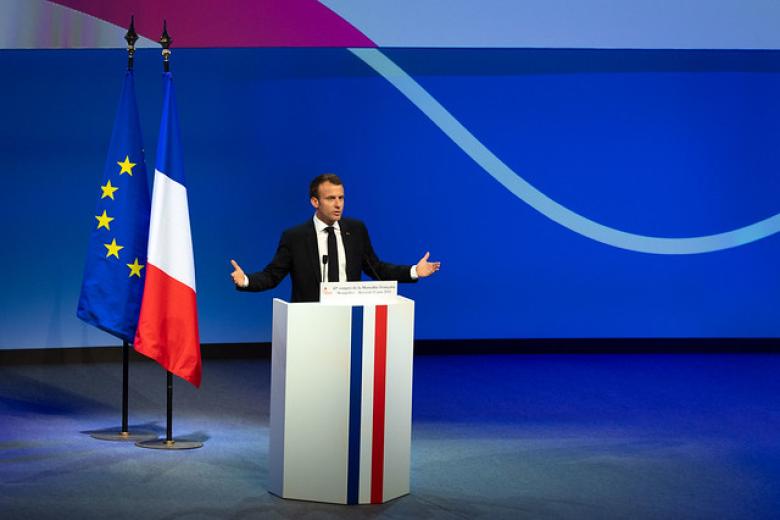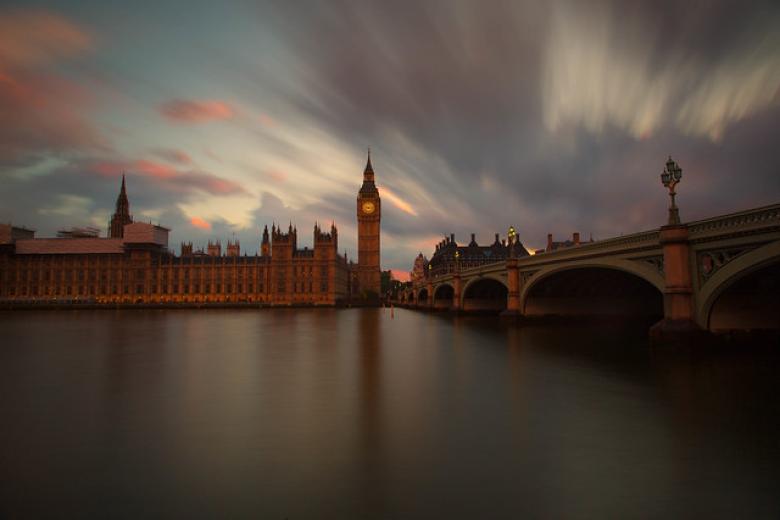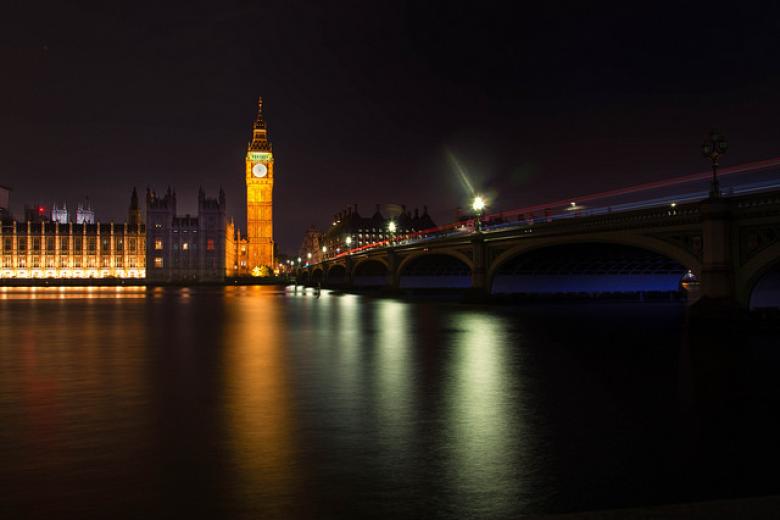The Ides of March: The United Kingdom gets one last chance. Will it use it?
Staying just a little bit longer? Or for good?
Summary: With the European Council throwing a lifeline to the United Kingdom, all options are back on the table. Rather than taking back control, the United Kingdom now finds itself dependent on the remainder of the European Union – with the absence of professionalism not endearing the British government to its colleagues. Meanwhile, the Prime Minister increasingly looks like a follower of events, not their driver.
(Picture: Flickr)
In the end, she finally brought everyone together. For Theresa May, the embattled Prime Minister of the United Kingdom, that was quite the feat. Unfortunately for her, it was not around her vision for Britain, but against her stewardship of the country. After a dramatic week, in which MPs rejected the EU/UK Draft Withdrawal Agreement (DWA) for a second time1, resolved to rule out No Deal and advocated a Brexit delay, the Prime Minister was poised to ask for just that extension. To add to her woes, the Speaker of the House of Commons, John Bercow (Conservative), essentially announced his intent to bar the Prime Minister from putting the DWA to a third vote, unless there was a substantial change from the second meaningful vote.
It appeared to be a done deal that a formal request for a longer extension would be needed and wanted. That was until Monday night when uncompromising cabinet ministers from the nationalist hard right, led by Leader of the House Andrea Leadsom, essentially threatened their resignations if May went to the European Council and sought an extension beyond 30 June 2019.
The absent art of diplomacy
Characteristically for her, the Prime Minister caved to her party’s right wing and only requested an extension until the end of June. In response, European Council President Donald Tusk clarified that the EU27 stood ready to grant a short extension – provided that Prime Minister May proved able to pass the DWA. Cue a belligerent televised speech by May who essentially laid the blame at the feet of Parliament, which she blamed for its supposed indecisiveness. However, as anyone who has been following the proceedings lately will know, the House of Commons has made a decision – it rejected the DWA, twice [1][2]. In a democracy, the defeat of a sitting government’s signature policy on two occasions, just two months apart, would lead to its head offering his or her resignation. Not so with Theresa May. Predictably, such an antagonistic speech did not go down well with many MPs.
Yesterday, after a long day of meetings, the European Council (the heads of state and government of the remaining 27 EU Member States (EU27) offered a multi-pronged extension offer, one that Prime Minister May accepted on behalf of Her Majesty’s Government. The offer’s elements and requisite timeline is as follows:
- If the House of Commons ratifies the DWA, the EU27 will extend the Article 50 deadline to 22 May 2019 – allowing the UK Parliament to enact the legislative framework for withdrawal
- If the House of Commons fails to ratify the DWA, the EU27 will only offer a shortened extension of the Article 50 deadline to 12 April 2019 – leaving all options open and, crucially, upon failure of the DWA, permitting the UK Parliament some breathing space to explore other options for withdrawal or reset the entire process (via a second referendum or a general election, for instance). In the event of the DWA having failed, Her Majesty’s Government will need to indicate its future plans on 12 April 2019 (presumably at an emergency European Council meeting) – procedurally, this is the final date by when the UK needs to signal whether it wishes to participate in the 2019 European Parliament elections. Provided this happens, a longer extension can be granted. Crucially, there is no maximum date that was given for such a potential long extension.
In its conclusions, the European Council asserted once more that the DWA will not be renegotiated in any way. For good measure, the EU27 also underline that they will maintain their preparations for a No Deal scenario.
After two and a half years of watching Prime Minister May and her cabinet flounder through the Brexit negotiations in a shambolic, unprofessional and amateurish fashion, the heads of state and government of the EU27 have had enough. By refusing an extension on the terms originally requested by Mrs May, they have made it crystal-clear that they no longer trust her assurances that she will be able to pass the DWA in time.
If nothing else, this will weaken May’s position even further – and may ultimately prove a fatal blow for her slim chances to remain Prime Minister before the withdrawal process is brought to an end. Contenders to replace her, from the downright incendiary to the expected, are already lining up. However, holding a Conservative Party leadership election at this time (and after last year’s failed Conservative Party leadership no-confidence motion May cannot be challenged until December), let alone a general election (which may yield yet another hung Parliament) would appear to be an indulgence the United Kingdom cannot afford.
What may happen is Mrs May falling on her proverbial sword: upon failure of the DWA, she could then seek a long extension – fully knowing that substantial parts of the Conservative Party will find it unpalatable – as the only workable option, thus enabling the next Prime Minister to start with a clean slate and without the “taint” of an Article 50 extension. As of this morning, given that Brexit is turning into the greatest policy disaster in recent memory, possibly even surpassing the Suez Crisis, there are calls (albeit still in the minority) for the formation of a national government (the kind you saw during the two World Wars). However, given the tribalism of British politics, this appears to be a rather fanciful notion.
The Next Steps
Where does that leave the Brexit project?
Back to square one, with Prime Minister May likely to make a third attempt at passing the DWA –The most obvious shift would be a meaningfully revised version of the DWA. Will the legal endorsement of the Strasbourg Agreement by the European Council be enough? Theresa May seems to think so, but Speaker Bercow appears rather uncertain about that constituting a sufficiently substantial change of the proposition to be voted on. After all the back-and-forth, despite her persistence, it may turn out that Parliament will not vote on the DWA for a third time. This possibility has been compounded by the fact that the European Council expects the House of Commons to ratify the DWA in the upcoming week.
The truth remains that the substance of the DWA remains unchanged. Besides, the supporters of both No Deal, a softer Brexit or a second national referendum have little incentive to vote for the DWA. No Dealers, led by the European Research Group faction within the Conservative Party, can just vote down the deal and run out the clock by 12 April. Soft Brexiters and supporters of a second referendum have now been thrown a parliamentary lifeline by the European Council and have much more time to explore alternative options. At the same time, the UK Parliament also needs to decide whether it wishes to participate in the European Parliament elections – and thus gain much more time to rest the discussion around Brexit. That’s why the next procedural steps will matter.
Whilst Labour Party leader Jeremy Corbyn, a Eurosceptic in all but name, has remained curiously passive throughout this saga, there are efforts afoot from his colleagues – including Shadow Brexit Secretary Keir Starmer, and prominent MPs Hilary Benn and Yvette Cooper to trigger a process of indicative votes by virtue of which the House of Commons can indicate its preference for an alternative to Mrs May’s plan. This would involve the transfer of authority for fixing parliamentary business from Her Majesty’s Government to Parliament itself – Mr Benn’s original plan only narrowly failed by two votes after reassurances had been given by the May Government that ample opportunity would be provided upon failure of the DWA. On Monday, a new attempt at passing the Benn Amendment being enacted will be made. If it is passed, it would represent an extraordinary constitutional development – and a repudiation of the Prime Minister and Her Majesty’s Government.
Parliament would then be steering the Brexit process on its own initiative.
The realistic options in such a scenario will likely be one of the following options:
- The passage of a softer Brexit agreement, whether in the form of a EEA/EFTA membership (similar to Norway – debatable, as it would require acceptance of the Four Freedoms and the jurisprudence of the Court of Justice of the European Union (CJEU)) or sectoral agreements (similar to Switzerland – unlikely, as the EU27 are said to be rather unhappy about Switzerland’s benefits under this arrangement; and as there have been disputes between the two sides concerning the right of free movement of EU nationals, famously, a 2014 national referendum attempted to curtail that right; with Switzerland not succeeding in doing so). EFTA membership would also require aligning its jurisprudence to that of the EFTA Court of Justice, taking account of CJEU case law until 1992. The EFTA Court is independent and, crucially, EFTA Member States are not obliged to seek a preliminary ruling from the Court
- The passage of a Customs Union+, as suggested by the Labour Party leadership: This would resolve the issue of the permeability of the Irish border post-Brexit. However, this would sacrifice the goal of independent trade deals. Access (as opposed to membership) of the EEA may require years or negotiation – and still accepting some freedom of movement.
- The passage of legislation enabling a national referendum to finally settle the Brexit issue once and for all – maybe something along these lines suggested in this earlier contribution on these pages.
After another week, it has been underlined once more than Brexit is an unmitigated and complete mess. Thus far, the country’s elected officials have let the United Kingdom down and have proven unwilling to contradict a facile and false narrative on popular sovereignty representing an imperative mandate. The EU27 should do everything possible to enable a change of heart – but we should not wait around forever. At some point, the citizens and the Parliament in the United Kingdom will need to reclaim their democracy for themselves. Will they have the strength, resilience and courage to resist those telling them that the people can only be asked once – and once only?
Maybe there is still some life left in this complex relationship, after all.
| More blogs on Law Blogs Maastricht |
-
Faites vos jeux
Britain gets a hard-fought extension, with incalculable consequences.

-
Change of course?
With options running out before the United Kingdom faces yet another critical deadline, Prime Minister Theresa May tries one last (desperate) gamble to “save Brexit” – reaching out to the Labour Party. Will it be successful? Which are the options remaining on the table? What could happen next? Here...

-
Facing reality
With merely two weeks before the United Kingdom’s scheduled withdrawal from the European Union, Westminster still does not know what it wants and where it wishes to go.
